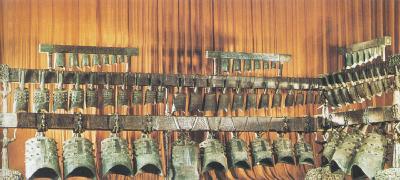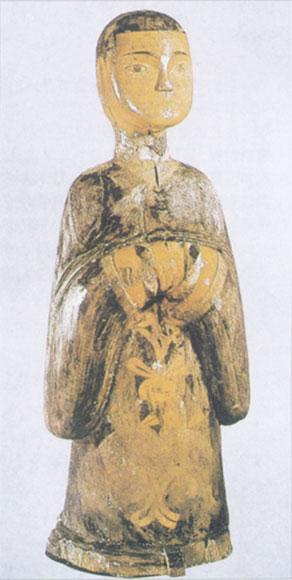| About China > History > Dynasties > dycontent |
|
|
Eastern Zhou Dynasty
From the beginning of the Eastern Zhou Dynasty to the unification by the Qin, China was plagued by disunity and continuous conflict. Historically, this period is recorded as the Spring and Autumn Period (770- 476BC) and the Warring States Period (476- 221BC).
The Hundred Schools of Thought
Among numerous schools, the oldest, and the most influential was Confucianism. It traced its origin to Confucius (551-479BC), a member of the lower nobility and a minor official in the small state of Lu, later extended by Mencius (372-289BC). Confucius tried to convince rulers that they should cultivate moral perfection to set a good example to the people, and that the ruler who governed benevolently would earn the respect of the people. He held the view that human nature was fundamentally good since everyone was born with the capacity to recognize what is right and act upon it. Contrary to this view, Xunzi (about 313-238BC), also a Confucian of the state of Chu, argued that people are born selfish and that it is only through education and ritual that they learn to give up evil and return to good. Xunzi also intensively negated the role of heaven, stressing the importance of the inner faith and belief that human beings exceed any other spiritual beings.
In contrast to these doctrines and utterly opposed to them were the tenets of the Legalist school that sought, by every means possible, to strengthen the state and increase its military might. Legalism began to take shape in the late fourth century. Legalists sought every means possible to strengthen the state and increase its military might. They defined the duties of people in society by framing detailed laws and imposing penalties accordingly to punish those who failed to fulfill them. Old customs and moral codes were to be replaced by these laws. Shangyang, an aristocratic descendant of the Wei Kingdom, was a representative of this school. He carried out a series of reforms in 359 and 350 BC to strengthen the power of the Qin. Later, in the Warring States Period, another legalist named Hanfei, or Han Fei Zi, who advocated harsh rules and laws, was also an adviser to the ruler. He was bent on organizing society on a rational basis and finding means to strengthen states agriculturally and militarily. They devised elaborate means for controling people's lives and actions through laws and punishments.
The doctrines of Daoism, the second great school of philosophy, emerged during the Warring States Period. The Chinese word tao (pronounced "dao") means a way or path. Considering it much too limiting to use the term tao for the way human beings ought to behave in society, the Taoists preferred to understand tao as the way of nature as a whole. They tried to stress not to exaggerate the importance of man. Since human life is only a small part of the universal, the only way human actions could make sense is when they are in accordance with the principles of nature. Taoists disapprove of an overly unnatural mode of behavior and advocate the way of spontaneity and harmony. Many Taoists also denounce violence since it reflects the ultimate ignorance of the way of nature. Daodejing (Classic of the Way and Its Power), which is attributed traditionally to Laozi and later complied by Zhuangzi, is the Taoist bible where many of the above-mentioned theories were included.
Due to the disunity and the disturbance among the states, the earliest known treatise on war and military science, the Chinese classic Bingfa (The Art of War), came out. It was traditionally attributed to Sun Zi (fourth century BC) -- a military strategist and general who served the state of Wu near the end of the Spring and Autumn Period (770-476BC). The Art of War is a systematic guide to strategies and tactics for rulers and commanders. The book discusses the various maneuvers and effects of terrain on the outcome of a battle.
Apart from the crowning achievements in the field of ideology, another noted man was Quyuan (340-278BC). As a great poet and politician who served as a chancellor to King Huai of the Kingdom of Chu, Quyuan wrote two poetic essays called Chuci (Poetry of the Chu Kingdom) and Lisao (Lament on Encountering Sorrow), which greatly influenced poetry of later ages. |
||||||||
 |


